By continuing to browse our site you agree to our use of cookies, revised Privacy Policy and Terms of Use. You can change your cookie settings through your browser.
I agree
Search Trends
CHOOSE YOUR LANGUAGE
- Albanian Shqip
- Arabic العربية
- Belarusian Беларуская
- Bengali বাংলা
- Bulgarian Български
- Cambodian ខ្មែរ
- Croatian Hrvatski
- Czech Český
- English English
- Esperanto Esperanto
- Filipino Filipino
- French Français
- German Deutsch
- Greek Ελληνικά
- Hausa Hausa
- Hebrew עברית
- Hungarian Magyar
- Hindi हिन्दी
- Indonesian Bahasa Indonesia
- Italian Italiano
- Japanese 日本語
- Korean 한국어
- Lao ລາວ
- Malay Bahasa Melayu
- Mongolian Монгол
- Myanmar မြန်မာဘာသာ
- Nepali नेपाली
- Persian فارسی
- Polish Polski
- Portuguese Português
- Pashto پښتو
- Romanian Română
- Russian Русский
- Serbian Српски
- Sinhalese සිංහල
- Spanish Español
- Swahili Kiswahili
- Tamil தமிழ்
- Thai ไทย
- Turkish Türkçe
- Ukrainian Українська
- Urdu اردو
- Vietnamese Tiếng Việt
Copyright © 2024 CGTN.
京ICP备20000184号
CHOOSE YOUR LANGUAGE
- Albanian Shqip
- Arabic العربية
- Belarusian Беларуская
- Bengali বাংলা
- Bulgarian Български
- Cambodian ខ្មែរ
- Croatian Hrvatski
- Czech Český
- English English
- Esperanto Esperanto
- Filipino Filipino
- French Français
- German Deutsch
- Greek Ελληνικά
- Hausa Hausa
- Hebrew עברית
- Hungarian Magyar
- Hindi हिन्दी
- Indonesian Bahasa Indonesia
- Italian Italiano
- Japanese 日本語
- Korean 한국어
- Lao ລາວ
- Malay Bahasa Melayu
- Mongolian Монгол
- Myanmar မြန်မာဘာသာ
- Nepali नेपाली
- Persian فارسی
- Polish Polski
- Portuguese Português
- Pashto پښتو
- Romanian Română
- Russian Русский
- Serbian Српски
- Sinhalese සිංහල
- Spanish Español
- Swahili Kiswahili
- Tamil தமிழ்
- Thai ไทย
- Turkish Türkçe
- Ukrainian Українська
- Urdu اردو
- Vietnamese Tiếng Việt
Copyright © 2024 CGTN.
京ICP备20000184号
互联网新闻信息许可证10120180008
Disinformation report hotline: 010-85061466










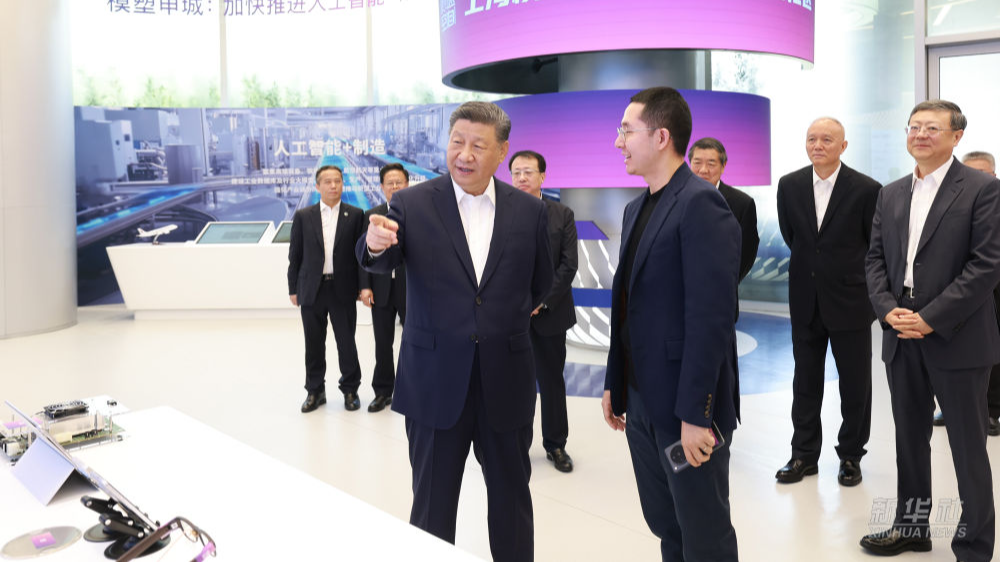
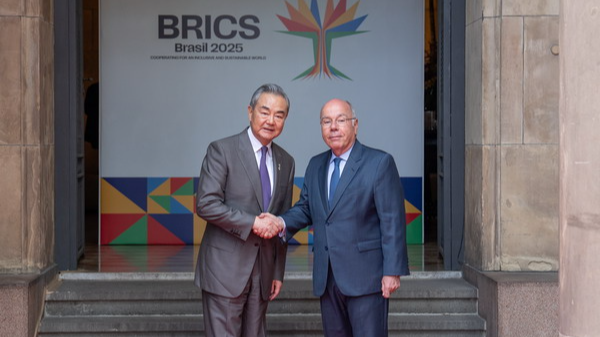
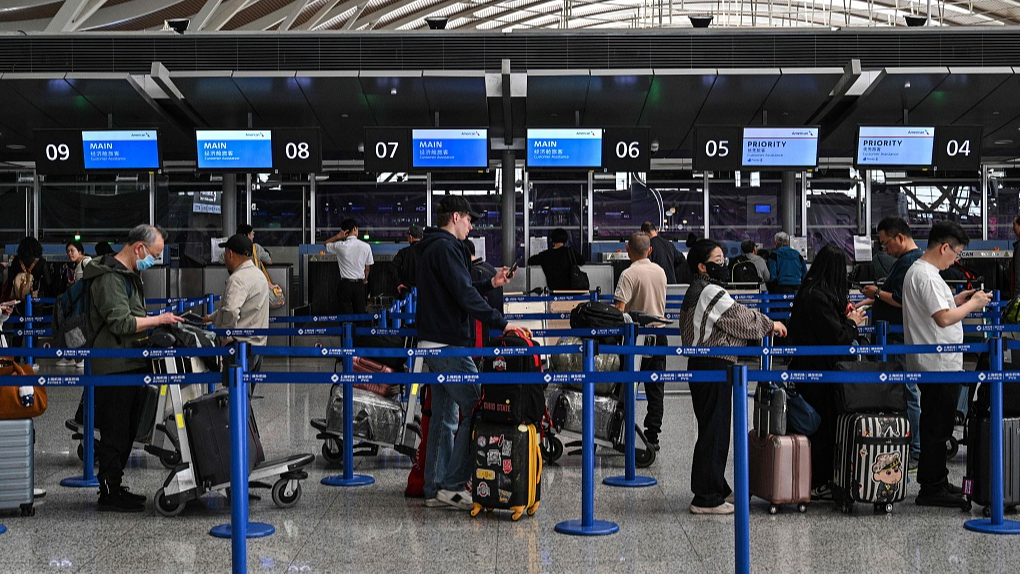
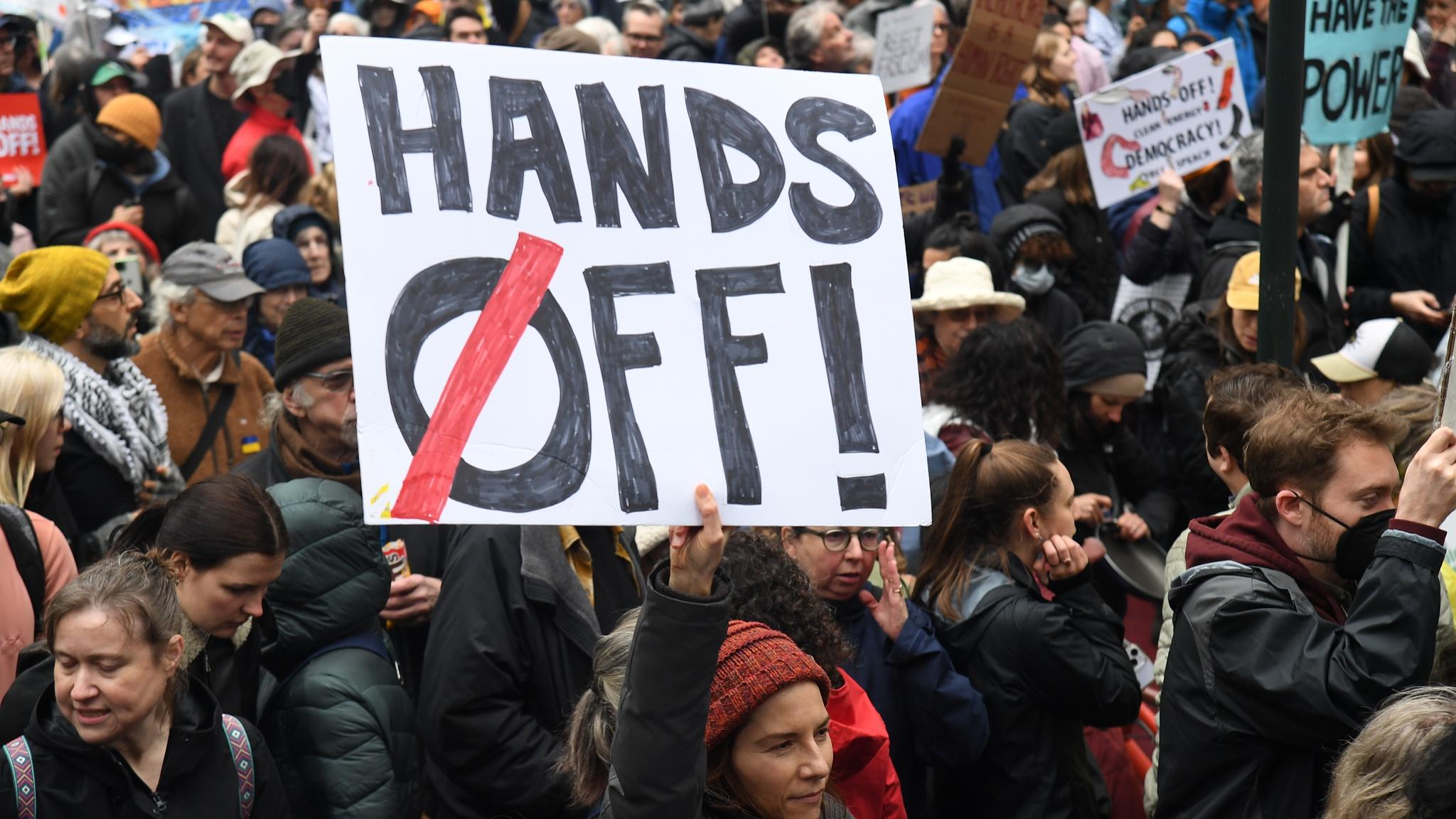


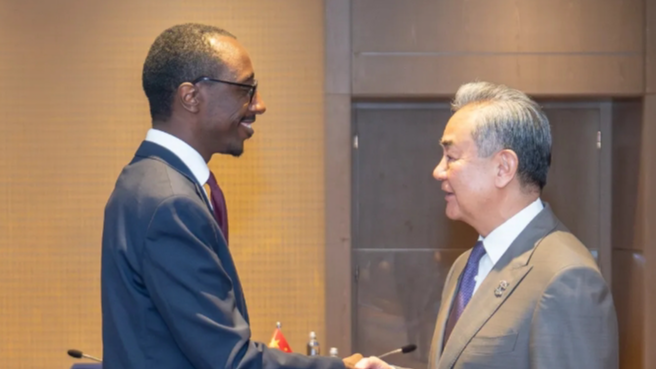
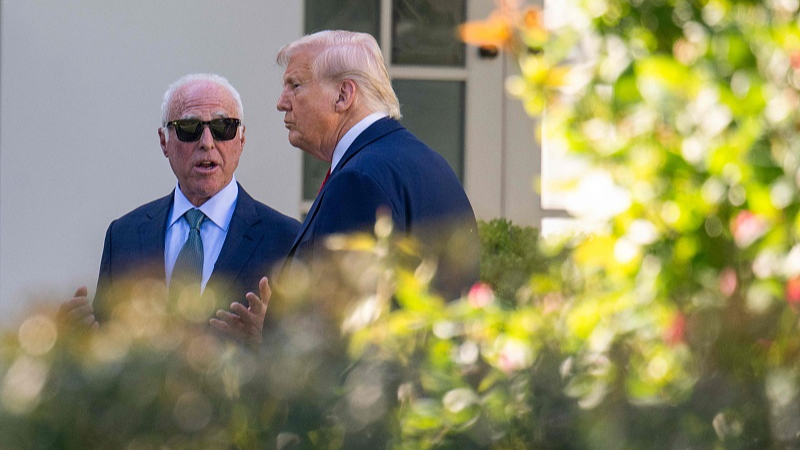
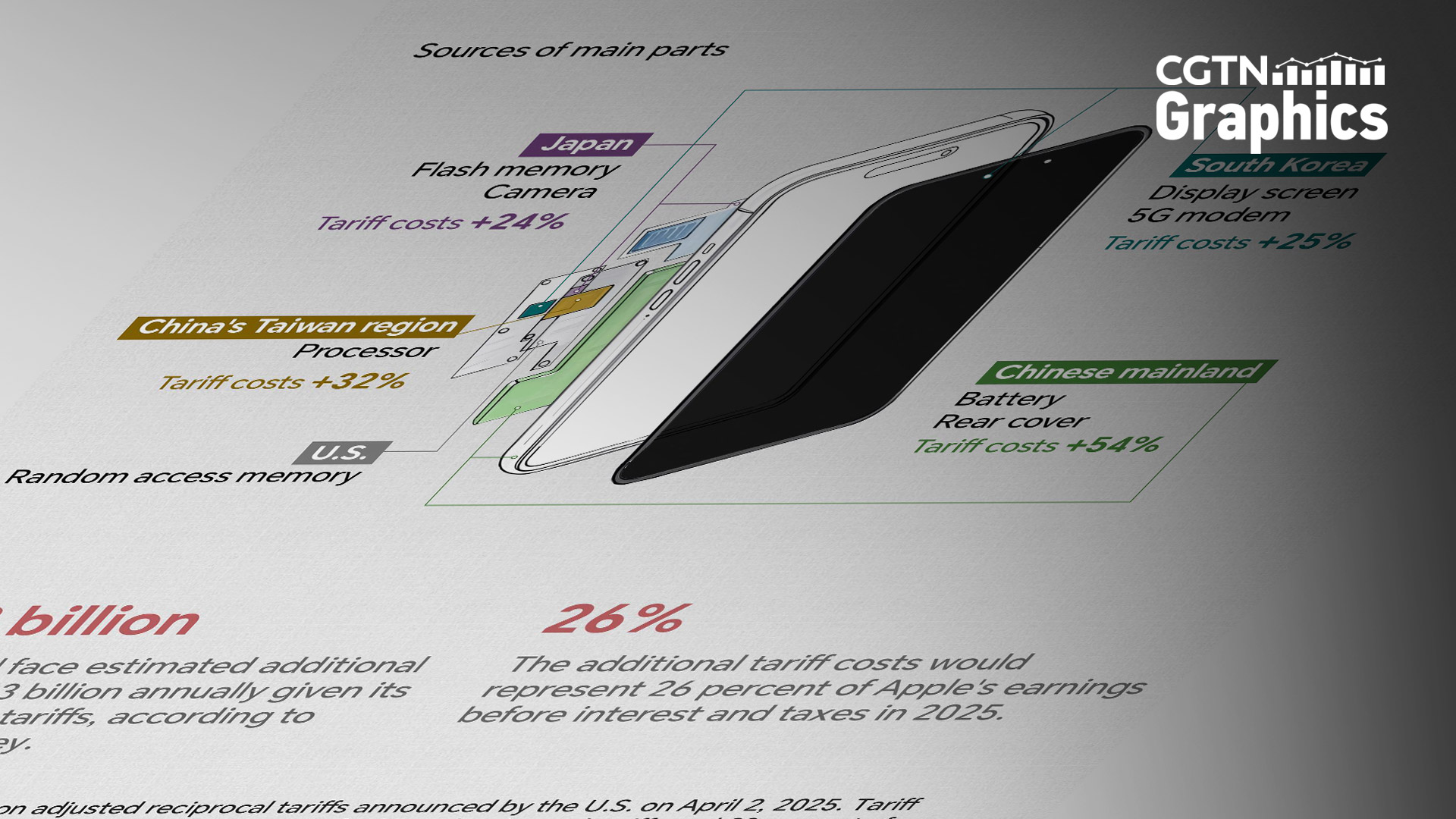
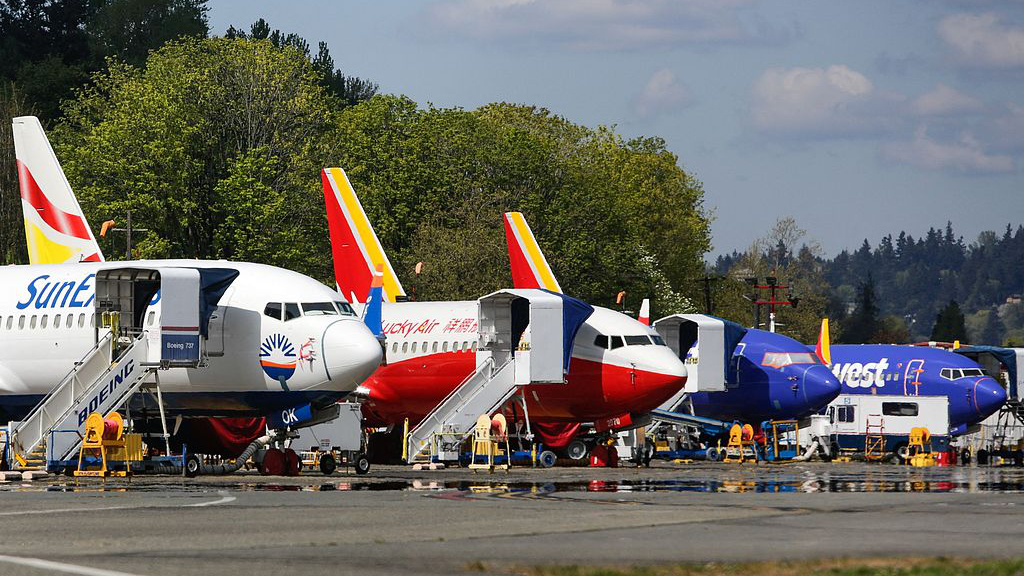

The Trump administration's 25 percent global tariff on passenger vehicles took effect Thursday, escalating trade tensions and sparking immediate warnings of higher consumer prices, production halts and strained alliances.
The tariffs, which apply to all imported passenger vehicles and light trucks starting April 3 and extend to auto parts by May 3, mark the latest escalation in a series of aggressive trade measures. While U.S. President Donald Trump framed the policy as a bid to revitalize American auto dominance, analysts warn it risks backfiring by disrupting supply chains, inflating costs for consumers and alienating key trade partners.
Anderson Consulting estimates the tariffs could add $4,000 to $10,000 to the price of vehicles relying on parts from Mexico and Canada, while Cox Automotive predicts a 30 percent drop in North American car and truck production – about 20,000 fewer units daily.
SUVs sit on display at a Ford dealership, in Las Vegas, U.S., April 4, 2025./VCG
American consumers are now rushing to buy vehicles before the effects of the tariffs kick in, but once pre-tariff inventories shrink, prices will rise sharply, driving a steep drop in demand, Xu Feibiao, a researcher and director of the Center for the BRICS and G20 Studies at the China Institutes of Contemporary International Relations, told CGTN.
S&P predicts U.S. light-vehicle sales could drop to 14.5 million to 15 million per year if tariffs stay in place – down from roughly 16 million vehicles sold in 2024.
"In the long run, Trump's tariffs will redefine the automotive landscape. Sustained price hikes and limited availability could dampen consumer enthusiasm, pushing buyers toward used cars, public transit, or delayed purchases," Xu said. "This slump in demand would compound challenges for automakers already struggling with fractured supply chains."
The duties have sent automakers and suppliers scrambling to adapt, with the immediate brunt falling on those most entrenched in the decades-old North American Free Trade Agreement (NAFTA), a pact rebranded as the United States-Mexico-Canada Agreement (USMCA) in 2020.
Cranes at the Port of Long Beach in Long Beach, California, U.S., March 6, 2025. /VCG.
Nearly 50 percent of U.S. auto parts imports come from Mexico and Canada alone, while Asian manufacturers contribute specialized parts to their American partners under long-standing trade frameworks, Xu noted. A report by Cars.com from early February revealed that nearly one quarter of new inventory vehicles in the U.S. had their final assembly in Mexico and Canada.
U.S. carmakers General Motors and Ford, which rely heavily on Mexican parts, may face production delays and cost overruns, while European luxury brands like BMW and Mercedes-Benz could see U.S. sales slump due to higher sticker prices. Nissan said on Thursday it will not take new orders from the U.S. for two Mexican-built models, while Stellantis said it will close its assembly plant in Canada's Windsor.
Aerial view of the Stellantis car factory in the city of Toluca, Mexico, April 3, 2025. /VCG
"Modern vehicle manufacturing is not confined to national borders. Automotive transatlantic value chains today are deeply interwoven," Matthias Zink, president of automotive supplier lobby CLEPA, said in a statement. "These protectionist tariffs risk breaking apart a trading partnership built over decades."
Trump's new auto levies are part of a broader tariff regime he has pledged to implement since returning to the White House in January, a policy he champions as central to his "Make America Great Again" agenda. On Wednesday, he also announced a 10 percent baseline tariff on all imports along with higher reciprocal tariffs aimed at specific economies, with the measures set to take effect either on Saturday or sometime next week.
The economic ripple effects are materializing in the face of these tariff maneuvers. U.S. manufacturing activity contracted in March for the first time in three months, with input costs soaring to the highest level in nearly three years, according to a survey by the Institute for Supply Management. Citing weaker growth expectations tied to tariff-induced inflation and disrupted trade flows, Goldman Sachs raised the probability of a U.S. recession to 35 percent over the next 12 months.
The tariffs also threaten to deepen rifts with long-standing allies. Mexico, the largest source of U.S. auto imports (2.8 million light vehicles in 2024), alongside South Korea, Japan and Germany, faces steep new barriers despite existing trade agreements like the USMCA. The EU, which exported 749,000 vehicles to the U.S. last year, worth €38.5 billion ($42.5 billion), condemned the move as economic unilateralism and vowed retaliatory measures.
"The only solution for the European Union will be to raise tariffs on American products in response," French Finance Minister Eric Lombard said in a radio interview, denouncing the U.S. for "completely changing its economic policy in a very aggressive way."
French Finance Minister Eric Lombard delivers a speech during the Euronext 13th annual conference in Paris on March 18, 2025. /VCG
"This isn't negotiation ... this is a national emergency," said Peter Navarro, Trump's top trade advisor, underscoring the administration's hardline stance. Critics argue the policy undermines decades of diplomatic and economic collaboration. "The Europeans have realized that America, the nation they thought was their friend, is actually a rogue superpower," David Brooks, a political commentator, wrote in an op-ed on the New York Times.
As the tariffs take hold, the world watches for retaliation. The EU has drafted targeted countermeasures against U.S. exports, while Canada vowed retaliatory tariffs. For now, the policy's ultimate impact hinges on whether it sparks a negotiated recalibration of global trade – or accelerates a fragmented, costly new era of economic nationalism.
"There is a growing consensus that the U.S., under Trump's zero-sum approach, is no longer a reliable steward of the global economic order," Xu said.